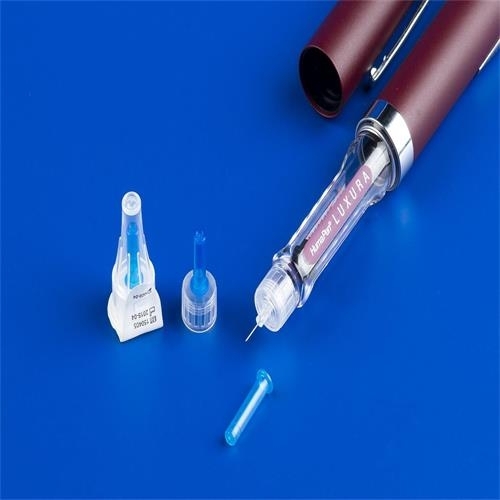What You Might Know About Insulin
Let’s talk insulin.
Mention the “I word” with a low carbohydrate dieter, or even a clean eater, and you may virtually discover them turn white because the blood drains from other face in abject horror.
To them, insulin is the big crook within the nutrition world.
They refer to insulin as “the storage hormone” and feel that any amount of insulin in your body will immediately lead you to lie down new fat cells, gain weight, and lose any a higher level leanness and definition.
Fortunately, that is not quite the truth.
In fact, while simplifying things when it comes to nutrition and training are frequently beneficial, this can be a gross over-simplification with the role of insulin within your body, along with the truth is entirely different.
Far from is the dietary devil, insulin is really not forget of at all.
What Insulin Does
The beginning from the insulin worrier’s claim (that insulin can be a storage hormone) holds true Body of insulin’s main roles is always to shuttle carbohydrate that you simply eat throughout the body, and deposit it where it’s needed.
That does not mean that all the carbs you eat become fat though.
You store glycogen (carbohydrate) with your liver, your muscles cells and your fat cells, and this will only get shoved into those pesky adipose sites (fat tissue) in the event the muscles and liver are full.
Additionally, unless you’re in a calorie surplus, simply cannot store extra fat.
View it by doing this –
Insulin is like the staff in a warehouse.
Calories would be the boxes and crates.
You can fill that warehouse fit to burst with workers (insulin) but when there won’t be any boxes (calories) to stack, those shelves won’t get filled.
So if you are burning 3,000 calories every day, and eating 2,500 calories (as well as 2,999) your body can’t store fat. No matter if those calories are derived from carbs or sugar, you simply won’t store them, because your body requires them for fuel.
Granted, this wouldn’t be the world’s healthiest diet, but because far as science is involved, it comes to calories in versus calories out, NOT insulin.
It’s not just Carbs
People fret over carbs having the biggest impact on insulin levels, and the way carbohydrate (particularly of the simple/ high-sugar/ high-GI variety) spikes insulin levels, but a good amount of other foods raise insulin too.
Whey protein, for instance, is extremely insulogenic, and may spark a spike, particularly if consumed post workout.

Dairy products too have a relatively large effect due to the natural sugars they contain, as well as fats can raise insulin levels.
Additionally, the insulin effect is drastically lowered when you eat a mixed meal – i.e. one that contains carbs plus protein and/ or fat.
This slows the digestion and the absorption in the carbs, leading to an extremely lower insulin response. Add fibre into the mix too, as well as the raise in insulin is minimal, so even when we had been worried about it before, the perfect solution is is easy – eat balanced, nutrient-dense meals, so you need not worry.
Insulin Builds Muscle
Rediscovering the reassurance of the idea of insulin as a storage hormone, and the notion it delivers “stuff” to cells:
Fancy having a guess at what else it delivers, beside carbohydrate?
It delivers nutrients to your muscle tissues.
Therefore, if you are forever always keeping levels of insulin low for fear of extra weight, it’s highly unlikely you’ll get ripped optimally. It’s for this reason that I’d never put clients trying to get buff making lean gains with a low-carb diet.
No Insulin Can Still Equal Fat Storage
Despite dozens of low-carb diet practitioners again, you’ll be able to store fat when levels of insulin are low.
Daily fat when consumed within a caloric surplus is really transformed into extra fat tissue far more readily than carbohydrates are, showing once again, extra weight or fat reduction is dependant on calories in versus calories out, not insulin levels.
Why low-Carb (and Low-Insulin) Diets “Work”
Many folk points for the scientific and anecdotal evidence low-carb diets working as reasoning to keep insulin levels low.
I won’t argue – a low-carb diet, where insulin release is kept low can simply work, however, this has hardly any to do with the hormone itself.
If you cut carbs, you normally cut calories, putting you in to a deficit.
Additionally, the person will eat more protein plus much more vegetables when going low-carb, in order that they feel far fuller and eat fewer. Plus, protein and fibre have a top thermic effect, meaning they will really burn more calories through the digestion process.
Bottom Line: Insulin – Not Bad In the end
You don’t need to concern yourself with insulin in case you –
Train hard and frequently
Follow a balanced macronutrient split (i.e. ample protein and fat, and carbs to accommodate activity levels and private preference.)
Are relatively lean.
Eat mostly nutrient-dense foods.
Have zero issues with diabetes.
You could still store fat with low insulin levels, and you can burn up fat and build muscle when insulin is found.
Taking a look at insulin in isolation as either “good” or “bad” is actually a prime example of missing the forest for that tress, so take it easy, and let insulin do its thing as you target the main issue.
For more details about ozempic online UK check out the best resource.

Leave a Reply
You must be logged in to post a comment.